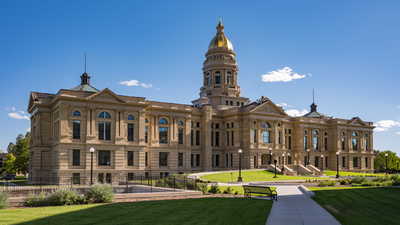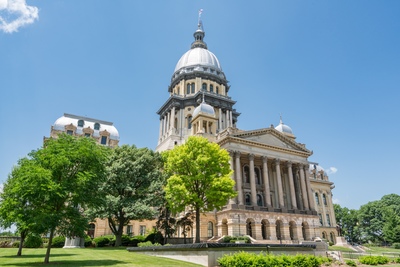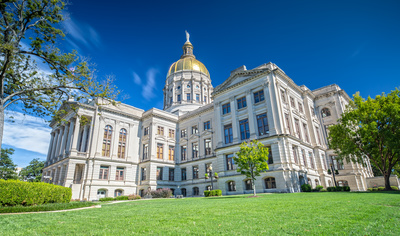
Energy & Environment
How Small Modular Reactor Laws Are Reshaping State Nuclear Energy Policy
January 23, 2026 | David Shonerd
January 25, 2023 | Billy Culleton

Key Takeaways:
Last week, the U.S. Consumer Product Safety Commission (CPSC) created a flurry of controversy over a rumored proposal to restrict the use of gas-powered stoves in homes. While the CPSC walked back the initial comments made by one of its five CPSC commissioners, some state and local leaders were quick to express concern over the idea of banning gas-powered stoves in residential buildings. Conservative lawmakers such as Florida Governor Ron DeSantis (R) used the incident to attack the Biden Administration and accuse the CPSC of overreach.
While fears over the federal proposal appear to have been overblown, state and local lawmakers on both sides of the aisle have been recently active on the usage of natural gas in residential and commercial settings. Legislation has emerged in various jurisdictions which seeks to ban natural gas in new construction while opponents are pushing legislation that forbids cities from banning natural gas in new commercial buildings. In 2019, Berkeley, California became the first city in the country to ban natural gas in new buildings. Not soon after, a number of the largest U.S. cities — Los Angeles, New York City, San Francisco, Seattle, and Washington D.C. — each adopted rules that would either ban or limit the use of natural gas in new residential and commercial buildings.
On the state level, in 2022, Washington became the first state to adopt rule revisions to its energy code that would require new commercial buildings to use heat pumps for space heating. California followed suit when the California Air Resources Board (CARB) approved its plan to phase out natural gas burning heaters and appliances in new buildings. And late last year, New York Governor Kathy Hochul (D) backed a statewide proposal to ban natural gas for new buildings in the Empire State.
With the 2023 legislative session well underway, lawmakers have already introduced bills seeking to ban natural gas for commercial use in several states. A Massachusetts bill (MA SD 144) would require new buildings to be all-electric, granting exemptions to fueling service stations and buildings with emergency energy backup systems in place. A pair of bills in New York (NY AB 920 & NY SB 562), meanwhile, would phase in a natural gas ban for new buildings by requiring buildings less than seven stories tall to be all-electric by 2025 and buildings taller than seven stories to be all-electric by July 2028.

On the other side of the issue, many conservative Republican lawmakers have attempted to counter local efforts to pass natural gas bans by enacting local preemption legislation prohibiting such acts. Currently, twenty states have preempted localities from prohibiting the sale of natural gas to customers. This year, lawmakers in Oregon (OR SB 647) and North Dakota (ND HB 1234) hope to join these states through similar measures that would preempt local natural gas bans.
The debate over natural gas is only expected to heat up as climate advocates push for policies to reduce greenhouse gas (GHG) emissions and increase the rate of electrification throughout the country. Efforts to limit natural gas for heating and cooking purposes have, for now, fallen mainly on residential buildings, but proponents are expected to continue pushing for “all the above” approaches that include commercial buildings as well.
If your organization needs assistance tracking energy legislation as it moves through state legislatures, or understanding how bills such as these can impact you, schedule time to talk with one of our experts.

January 23, 2026 | David Shonerd

January 22, 2026 | Daniel Kampf

October 27, 2025 | Billy Culleton